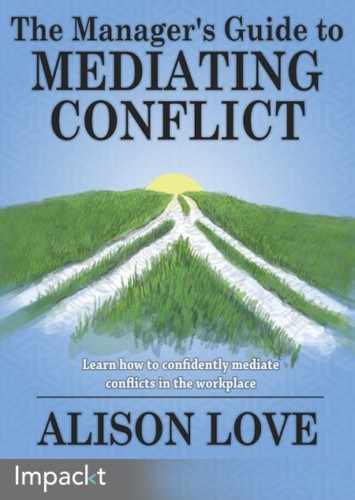With over 30 years of experience as an HR practitioner and employment lawyer, I have witnessed and advised on more workplace disputes than I care to remember. I began to see the same patterns recurring and the outcomes being less than positive for the organizations or the individuals concerned. Disputes would generally involve considerable expense and management time and often end in a painful exit of an employee who was once highly regarded.
I began to think that there must be a better way; to me, traditional grievances or disciplinary processes were causing considerable harm to individuals and businesses, and the current mechanisms used to resolve disputes were not fit for purpose. These processes were becoming more and more legalistic and adversarial, concerned with imposing a decision by a third-party rather than bringing those concerned together and resolving matters directly between them. When I started to look into mediation, I began to understand how mediation offers something very different from the more traditional processes; I had what I would describe as a "light bulb" moment. I soon realized that mediation is an empowering alternative that in the vast majority of cases will provide far better outcomes with considerable cost savings. I now look back at some particularly painful cases that I was involved in litigating; if mediation had been an option then, I am convinced that it would all have been far less painful and less costly. I also realized that the skills that you learn to become an effective mediator are key people management skills that enhance employee relations, enabling teams to use conflict positively and improve performance.
It is clear that workplace conflict and the costs associated with it are on the rise. If these costs could be reduced, there would undoubtedly be a positive impact on the bottom line. It is estimated that a staggering 25 percent of managers' time is spent in dealing with workplace conflict. If conflict remains unresolved or a formal process is followed, the divide between the individuals widens, communication becomes guarded or ceases altogether, and the conflict deepens and becomes more entrenched. The inevitable results are damage to an individual's wellbeing, increased sickness absence, and reduced levels of engagement, motivation, and productivity, as well as a possible loss of talent. The Advisory, Conciliation, and Arbitration Service (ACAS) suggests that the cost of mediation is half that of pursuing a formal process, while others suggest it is a fifth; either way it is a considerable saving. If litigation or settlements follow, these are additional, and often substantial costs are incurred on top of the indirect costs. In contrast, mediation will usually conclude in one day with most providers reporting success rates of 90 percent. While there is some debate about what success means, there is no doubt that the business case for mediation is very strong.
I am now a passionate convert to workplace and employment mediation. It should and could be used in far more cases than it currently is. This book is designed to share my revelations and to encourage you to have the confidence to use meditation skills and processes to the benefit of employees and organizations alike.
Mediation skills can also be used to help positively manage conflict on a day-to-day basis so that conflict becomes constructive rather than destructive. This in itself produces huge benefits. I do not exaggerate when I say that every conflict situation that I have come across could and should have been resolved much earlier with the right management intervention. Far too often, situations are left to fester until there is a tipping point. By this time, much damage has already been done and the conflict is harder to resolve.
My hope is that this book will also help to equip you with the skills to prevent situations escalating to this point and to help you resolve those situations that have. If I achieve any of that, even in part, I will be happy! Not only will I have made individuals' lives and relationships better, I will also have saved organizations a considerable cost. Happy days!
Chapter 1, Conflict in the Workplace, looks closely at some of the key principles behind the contemporary understanding of conflict and how it arises in the context of the workplace.
Chapter 2, Mediator Skill Set, gives you the skills and strategies you need for an effective and successful mediation process.
Chapter 3, The Mediation Process, will take you through the typical framework of mediation, including the necessary legal information, as well as some advice on how to get the most effective results.
Chapter 4, Beyond the Mediation, gives you guidance and information about what needs to be done after the process to ensure that positive results are maintained and that the parties involved are both satisfied.
